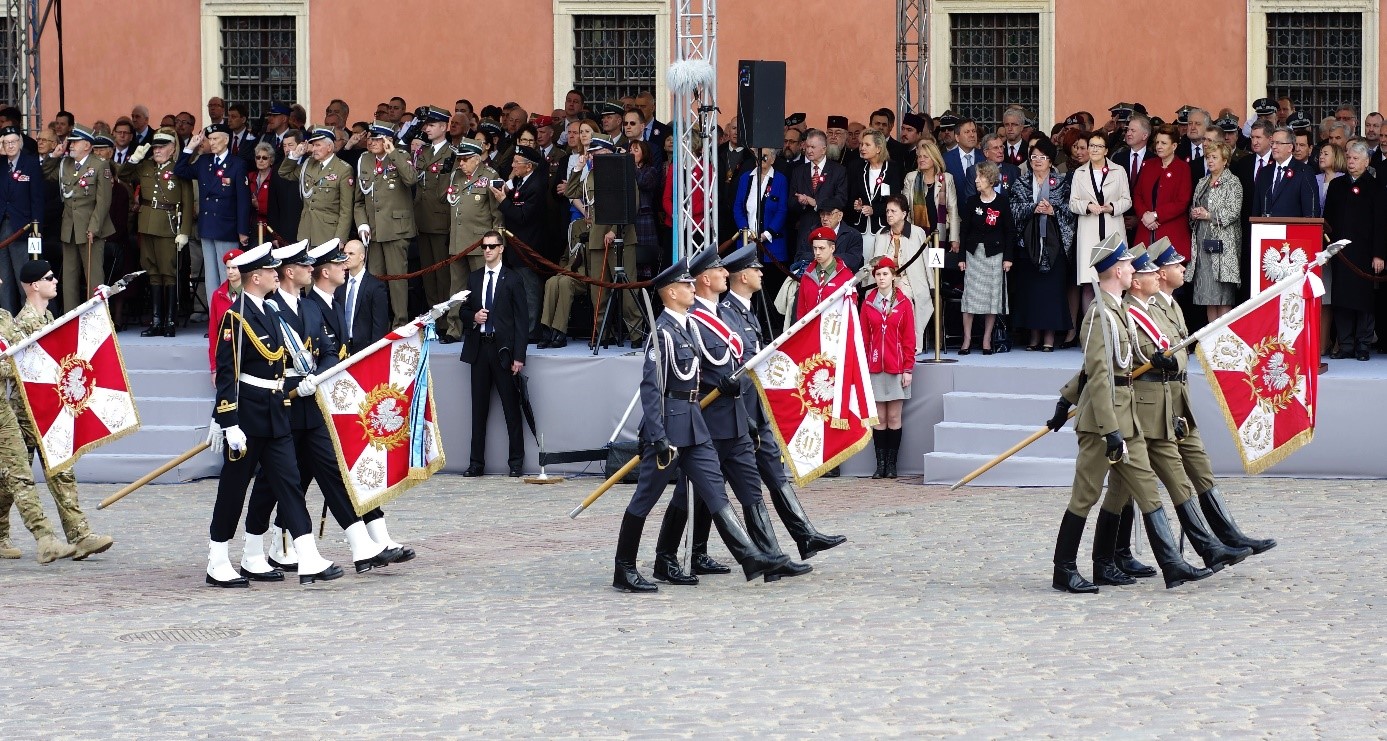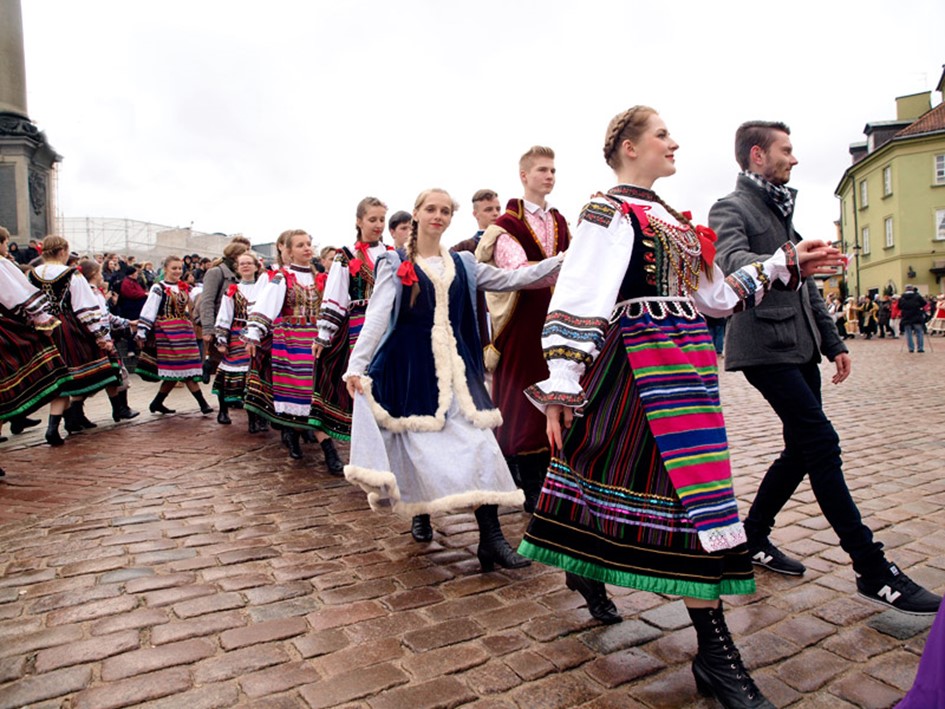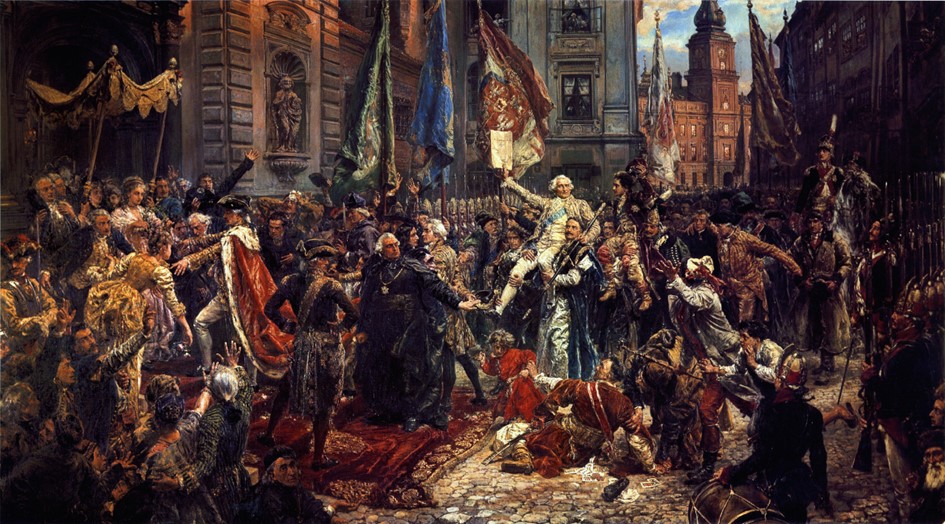By Sébastien Meuwissen.
Sébastien Meuwissen is a Polish-Belgian journalist based in Belgium.
Poland – This Thursday on May 3, Poland will celebrate its first constitution. Like every year, there will be animations everywhere in Warsaw.

May 3 is a holiday in Poland. On this day the Poles do celebrate the proclamation of the Constitution of 1791. Every year, a lot of festivities are organised in the whole country and particularly in the capital Warsaw. Speech of the President, military parades, concerts with free entrance, public lectures of theatre plays… Hundred of Poles dance the “polonaise” (a traditional national dance for special events) on the square in front of the royal castle.
The people are strolling through the streets, meeting with friends. The atmosphere is pleasant. The lucky tourists who visit the capital at this moment can make the experience of a benevolent joyful atmosphere that goes beyond all political differences. These festivities also cross the Polish borders as the 3 May is also celebrated by the Polish minorities in Lithuania, Belarus and Ukraine, as well as by the Polish diaspora all over the world.

Poland is – with the exception of Corsica – the first European country that adopted a constitution, and the second one in the world, after the United States (1787). Who in Western Europe does know this historical fact?
This constitution was proclaimed at a time where Poland was subject to important covetousness from its neighbours: Russia, Prussia and Austria. Four years later they partitioned the Polish territory among them. Poland then disappeared from the map for over one century… The adoption of this legislative text occurred therefore within a particularly tensed context.

The Poles have good reasons for being proud of this chapter in their History. The adoption of the Constitution of 3 May made this country to a pioneer in terms of democracy and freedom on a European and global level. In fact, the latter was particularly modern for that time. Very inspired by the American Constitution, it gave more prominence to the ideas inherited from the Enlightenment, notably the principle of separation of powers theorised by Montesquieu.
In her book “Le Roman de la Pologne” (chapter 13, page 285), the Polish-French writer Beata De Robien refers to this historical event.
“The so called Constitution of 3 May abolishes the nearly feudal form of the Polish government. Henceforth, the monarchy will be hereditary, what will then put an end to the crises of succession and to the foreign intrigues. The deputies will be elected to the Sejm by majority voting and will vote themselves at the majority, like the English Parliament. The commoners can access to higher State functions, Poland is not a noblemen’s commonwealth anymore. The peasants are protected by law.”
Poland became then an hereditary, constitutional and nearly parliamentary monarchy.
This year, the celebration of the Constitution will have a special taste, as Poland also celebrates the 100 years of the restoration of its independence after the First World War. So it might be a kind of great rehearsal for the celebration of independence that will take place on the next 11 November.
Nowadays like during its whole History, Poland is subject to all kinds of attacks. Internal and international forces seem to have some problems to admit that the country has finally recovered its sovereignty and its independence. This national commemoration is therefore a good occasion for remembering the European liberal-libertarian elites and all lecturers that Poland has always been in the vanguard of the struggle for freedom and democracy.




